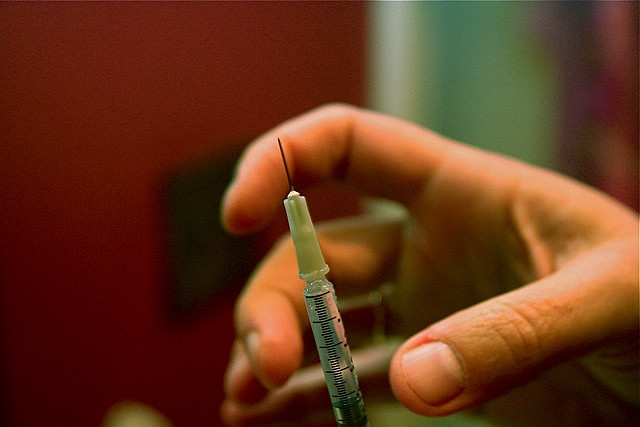
The Indian government has suspended the manufacturing licences of 10 drug companies after their injections used for treating fungal infections were found unsafe, Shripad Yesso Naik, the Minister of State for Health and Family Welfare, informed the Parliament on Tuesday.
The minister was quoted by the Press Trust of India as saying that there were efficacy and safety issues regarding the Liposomal Amphotericin B Injection, which is used for the treatment of systemic fungal infections and for Vesceral Leishmaniasis (Kala Azar).
He further said that the licences of the 10 drug firms have been suspended in six states following inputs from the Indian Council of Medical Research (ICMR). The names of the companies were not disclosed.
"The Central Drugs Standard Control Organisation (CDSCO) asked the State Licensing authorities concerned to suspend the manufacturing licenses of 10 manufacturers of Liposomal Amphotericin B Injection on March 11, 2016," Naik said during the question hour in Rajya Sabha, according to PTI.
The minister further said that based on the recommendations of an experts' committee from ICMR that reviewed the concerned drug, the 10 companies were directed to prove the safety, efficacy and quality of their products. "Show cause notices were issued to all 10 manufacturers to reply within three weeks as to why the manufacturing licences issued to them for their products Liposomal Amphotericin injection should not be suspended," the minister said.
He added that out of the 10 companies, only seven responded, and their responses were found unsatisfactory. "Accordingly, state licensing authorities were requested to suspend manufacturing licences of all the ten manufacturers of the product in public interest," Naik said, adding that the government has not terminated their licence, but asked the drug firms to fulfill the conditions so that they can restore the manufacture of the products. "Directions have also been given to states to suspend licences of all such medicines till they fulfill the conditions," he said.
The Indian government had on March 10 cracked a whip on the drug companies by banning 344 combination drugs, including popular medicines such as Corex and Phensedyl cough syrups, and Vicks Action 500 Extra, which led pharma firms to challenge the order in the Delhi High Court,.
The government is also considering regulation of the production of homoeopathic, Ayurvedic and Unani drugs under the Drugs and Cosmetics Act, 1940.
















